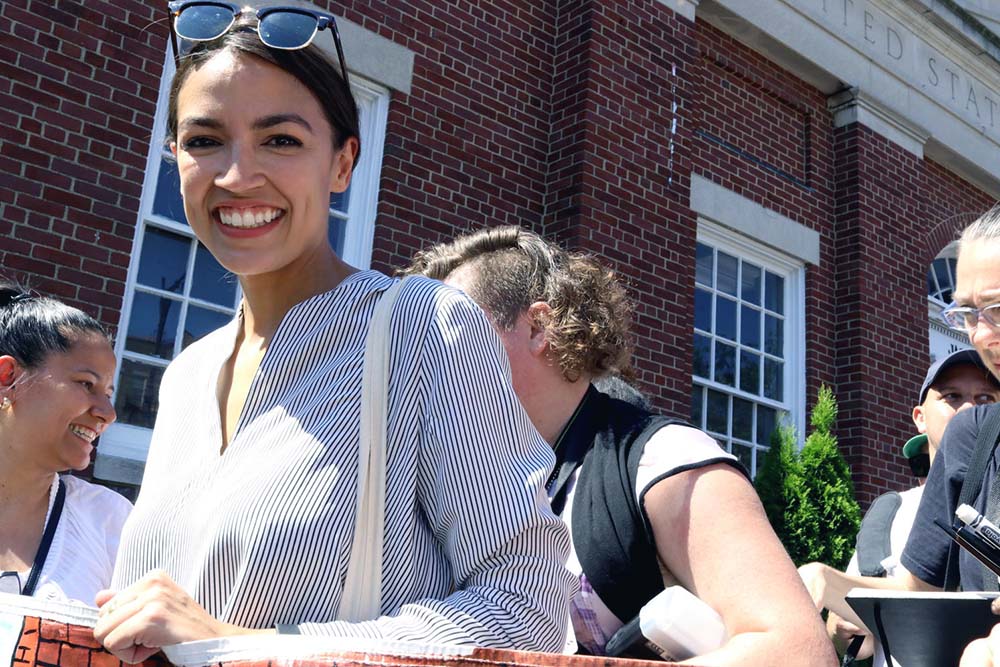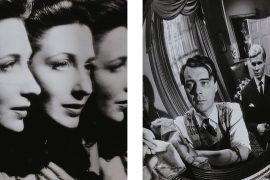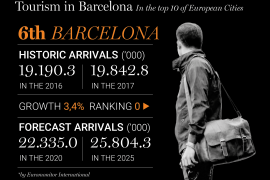In 1981 it was released in the cinemas For your eyes only, one of the James Bond episodes, starring Roger Moore. According to the script -in this case, far away from the luxury vehicles to which we have been accustomed by the saga – you can see the agent at the wheel of a Citroën 2cv, dribbling downhill the branches of olive trees, carob trees and a mixture of Iberian concepts rather old-fashioned. But even more bizarre seems the caricaturesque appearance, by the end of the film, of Margaret Thatcher, at that time British Prime Minister.
In the scene, a kind of tribute to Lichtenstein’s Pop Art, Thatcher shows in the kitchen of 10 Downing St. dressed in a blue skirt -the blue of great occasions-, apron and yellow latex gloves that she takes off to answer the phone that is ringing in the closet of cereal packages. The Prime Minister then picks up the red earphone, through which a member of her cabinet lets her know that, as she had requested, agent 007 is on the other side of the line. But instead of Roger Moore, busy with the young woman who accompanied him in the 2cv, British secret forces mock the astute Iron Lady with a parrot -a fact, to mock the Prime Minister, rather improbable- while she, still stuck to the phone, whips his husband’s hand for sneaking in the bowls of the dinner before time. The scene is the seal, the closure of a world that still needed flesh and blood heroes in the collective imagery. The premiere of For your eyes only took place only after two years that Margaret Thatcher, against all odds, had been elected Prime Minister of the United Kingdom and was forced to get, time and again, in some mess.
Margaret Thatcher came from a family of merchants and, despite the unfavorable context, she gained recognition both in the environment of the Conservative Party and in the context of English society, clearly dominated by men. She entered the House of Commons with only 24 years old, and at 27 she was already Minister of Education and Science. During the first three years of her mandate, her uncompromising profile brought nefarious levels of popularity. Until 1982, when she reacted by overcoming the provocation of Argentina in the Falklands War. Thatcher knew how to take advantage of the wave of patriotism that aroused the victory to win clearly in her second election and, months later, place Britain at the forefront of the world economy. Reviewing the trajectory of the character I regretted the absence of digital media in that period. I am almost convinced that Thatcher would have wanted to pilot -if not always, to a large extent- her Twitter account: The lady’s not for turning, she would have typed. She would have caused a great stir during the struggle with the unions and would have blown her team’s strategies with a selfie at the Ronald Regan Ranch, or showing her back to Lenin’s mausoleum with Mikhail Gorbachev hooked by the shoulder.
Who, on the other hand, positively has used and uses the digital media is Alexandria Ocasio-Cortez, the leader -on the rise- of the Democratic Party of the United States. Lovers of coincidences and zodiacal frameworks should know that Thatcher and Ocasio-Cortez were born the same day. They are separated by 64 years and an abyss in the way of understanding politics. Even so, the similarities are also remarkable. Ocasio-Cortez, only 28 years old, was born in the Bronx, a New York district and the birthplace of many taxi drivers, waiters and garbage collectors in New York City, traditional stronghold of the Democrats. Shortly before winning the primaries on June 27 this year, she was still working in a Mexican tavern in Union Square, the bar where she served drinks for 11 years, since her father died.
Alexandria is a phenomenon of communication in networks. In addition, the campaign of the new leader of the Democrats, with a budget 10 times lower than its rival, the historic Joseph Crowley, 56, has been financed through small donations from common people -80% do not exceed $70-, explicitly renouncing the contributions of large corporations, and the consequent commitments to them. The style of the young leader is devastating: transparent, direct, ambitious, magnetic. Outstanding student in the Obama school, she surpasses the mastery of the one who, probably, will end up being his predecessor in the orbit of the Kennedys and Clinton parties, and even in front of the White House and global politics. It is no coincidence that Crowley, assuming the defeat, climbed the stage and holding his guitar -in a familiar gesture- sang for her Bruce Springsteen’s Born to run.
The road waiting for Ocasio-Cortez is full of obstacles, and the frankness and magic that comes from her way of addressing people -I encourage to follow her through media and platforms like Instagram, Twitter, YouTube- makes her so vulnerable that, perhaps for that reason, one tends to protect her and surrender to the cause. New politics have ceased to be left or right-wing and have rather become a duel in the axis that separates those who are above and those who are under, she believes. Thatcher took the shortcut to head Westminster and remained 11 years. Despite the controversy of her policies, her commitment changed the world and, to a great extent made her lose self-esteem. Margaret Thatcher’s world was flat and heavy as a slab. The world of Alexandria Ocasio-Cortez, on the other hand, is expected to be original and aligned with the tendency to change. It is, possibly, the last hope in global politics. May the force -and the courage not to turn around- accompany her.
* The lady’s not for turning. It is a well-known sentence that Thatcher launched during the speech at the Conservative Party Conference on October 10, 1980. Thatcher, with this play on words, appeased the demands of the opposition that claimed to dispel the economic policies of recent months, which had caused a noticeable increase in recession and unemployment. The phrase made a fortune and, at the end, the speech sparked an ovation of more than 5 minutes.
Featured image:
Alexandria Ocasio-Cortez in New York on June 30th, 2018. Photo by ZUMA Press, Inc. / Alamy Stock Photo





















